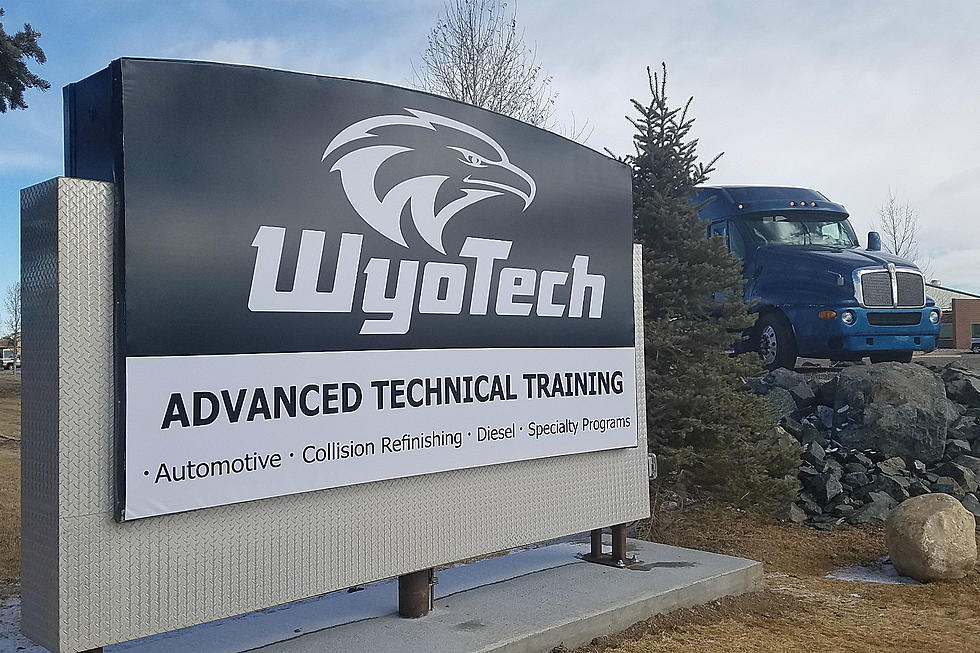
WyoTech Gives Tips for Winter Car Care in Cold Weather
As seasons change and conditions become colder, it is necessary to make sure that you check a few important things on your vehicle to ensure that it runs smoothly in harsh weather. Over the years there have also been some changes in recommendations as far as the best way to warm up your car amongst other things. Brandon Homan of WyoTech's automotive team was nice enough to answer some questions and help us make sure we had our facts straight. There seems to be quite a few myths surrounding different aspects of this topic, many of which you might have heard in the past. If we don't address something you are curious about here, comment using facebook below and we will try and get an answer for you.
Of the more major things to look at, the first would be the type of oil that you have put into your vehicle as temperatures fall. In your owners manual, chances are that it will say what oil to use at certain temperatures because oil does get thicker when it is cold outside. Using a thinner oil will help to lubricate the engine better in winter. You also want to take a quick look at your windshield wipers as they have a life of about one year. Nothing is worse than driving in a storm with sub-par windshield wipers and not being able to see in degraded conditions. Being able to clean off your windshield with washer fluid is important as well so make sure the reservoir is full; just don't don't fill it with water as you will end up with frozen fluid and a cracked reservoir. Hopefully that was fairly obvious! The biggest thing to look at as far as starting your car in the morning is your battery; if it is 3 years or older get it tested at a local auto parts store. If you do need to replace the battery, make sure that you choose a battery that meets or exceeds the cold crancking amps of the old battery. Cold Crancking Amps are really matters in the cold. If you do get into your vehicle in the morning and it won't start I have found that giving the car a little gas while turning the key in the ignition solves the problem most of the time. In order to get the best gas mileage in winter, check the inflation of your tires; with every ten degree drop in temperature you loose about one pound of pressure in a vehicle's tires. This can cause issues with alignment and traction as well so it is important to at least check your tire pressure.
One thing that has changed over the years is the process for warming up a car. With older vehicles it was necessary to let them sit for a while and warm up, however Brandon verified for us that this is not the case with modern vehicles. All you really need to achieve when warming up your vehicle is oil circulation through the engine, which only takes about 30 seconds to a minute with the invent of modern car parts. After that it is fine to drive the car at low speeds as it finishes warming up. Another thing to watch out for in very cold temperatures is not letting your gas tank get below 1/4 of a tank as it could possibly freeze without some kind of additive. Brandon mentioned that it is not a good idea to let the tank get extremely low year round as sediments that collect at the bottom of the gas tank can clog up the fuel pump of a car as it uses the last of the fuel.
In cold weather you might notice that your vehicle makes some odds sounds as it starts and warms up, but for the most part Brandon said that this is completely normal. As long as they do not persist after about five minutes of starting the car you should be just fine. Many times these noises are causes by the suspension (creaking), valve clatter (ticking) or the power steering pump (whining). If noises are very loud or seem to be more serious than what is mentioned above, it can't hurt to have your vehicle checked over by a certified mechanic.
The last thing to look at heading into winter is the use of snow tires. Brandon highly recommended using these special tires if you can. Their special treads dig into snow and ice to give you increased traction. The special rubber is softer to give extra traction in cold weather as well. While the tires might be somewhat expensive they will be much cheaper than getting into a car wreck.
Please note that these are suggestions and tips to give you somewhere to start, but that further advice should be sought from an expert mechanic. If you do have questions feel free to comment below.
More From Laramie Live









